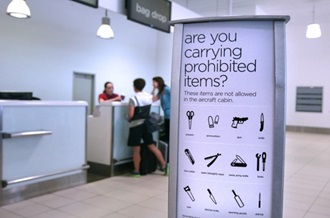Interceptions of firearms, made by the Transportation Security Administration (TSA) officers, amounted to 1,508 at airport security checkpoints during the first quarter of 2023. The averaging rate of interceptions stood at 16.8 firearms caught per day, with more than 93% of the firearms being loaded.
The number of firearms intercepted during the first quarter represents a 10.3% increase over the same period in 2022; however, the number of passengers from 2022 to 2023 has also increased. In the first quarter of 2022, TSA officers stopped 1,367 firearms at airport security checkpoints, which averaged 15.2 firearm catches per day. More than 86% of those firearms were loaded.
During the first quarter of 2023, Transportation Security Officers (TSOs) screened over 191 million passengers, compared to about 158 million passengers in the first quarter of 2022, representing an increase of 20.4%. The rate of passengers with firearms during the most recent quarter was 7.9 firearms per one million passengers, decreasing slightly from the same period in 2022, when the rate of discovery was 8.6 firearms per one million passengers.
“Firearms at TSA security checkpoints present an unacceptable safety and security risk to other passengers and I am deeply concerned that the majority of these firearms our TSOs catch are loaded,” said TSA Administrator David Pekoske. “If you carry a firearm to the checkpoint, our TSOs will see it and there will be significant penalties, to include federal penalties and additional screening, which may prolong the security screening process. You may still travel with a firearm – it just must be properly packed in your checked baggage and you must declare it to the airline.”
Firearm possession laws vary by state and local government, but firearms are prohibited in carry-on bags, at TSA security checkpoints and on board aircraft, even if a passenger has a concealed carry permit. When passengers bring firearms to the TSA security checkpoint, TSA suspends their TSA PreCheck® eligibility for five years, which includes current TSA PreCheck members.
Additionally, TSA may conduct additional screening for those passengers to ensure no other threats are present. Late last year, TSA increased the maximum civil penalty for a firearms violation to $14,950. Passengers with firearms found in a carry-on bag at a TSA checkpoint are also subject to applicable city or state laws at that airport that may include citation or arrest.
Passengers may travel with a firearm if they properly pack the firearm in checked baggage and declare it with the airline at check-in. Airlines may have additional requirements for travelling with firearms and ammunition, so travellers must also contact their airline regarding firearm and ammunition carriage policies prior to arriving at the airport.








